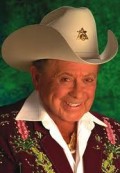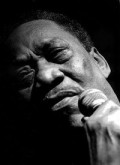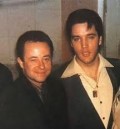Marshall Lytle, the bass player for Bill Haley and His Comets during their biggest era, died on Saturday morning at 3:30 AM at his home in Port Richie, FL after battling lung cancer. He was 79.

Marshall Lytle
Lytle was honored one year ago when he and the rest of the Comets were among the first backing group’s to be inducted into the Rock and Roll Hall of Fame. For the Comets, the honor came 25 years after Bill Haley was accorded the same honor.
Marshall started out his musical career as a guitarist but switched to double bass when he joined Bill Haley’s Saddlemen in 1951. Haley taught Lytle how to play the slap bass, a skill he would take to blistering new heights over the years including his stage antics like throwing it in the air, playing it like a guitar and riding on the side or standing on it while playing.
In late-1952, the band changed their name to the Comets and Haley and Lytle wrote one of their first hits, Crazy Man Crazy (Lytle did not officially get his songwriting credit until 2002). The song is credited with being the first rock song ever used on a national TV show, appearing on the soundtrack of a James Dean play.
In 1954, the band followed with Shake, Rattle and Roll, one of the biggest hits of the year and, in 1955, the song that really started it all, Rock Around the Clock. Clock was actually recorded and initially released in 1954 to only moderate success but reemerged after being used on the soundtrack to the movie Blackboard Jungle.
Shortly after the success of Clock, Lytle and two other members of the Comets left the group in a salary dispute. The three formed the group the Jodimars who became staples in the Las Vegas showroom scene for the next three years. After their breakup in 1958, Marshall continued to try to make it in music but quit two years later to go into real estate and eventually, interior design.
In October 1987, Lytle and the rest of the surviving members of the original Comets got together for a tribute concert for Dick Clark and found that they enjoyed playing together, setting off a series of tours, mainly through Europe. He continued with the reformed group until late-2009 when he finally retired.
















